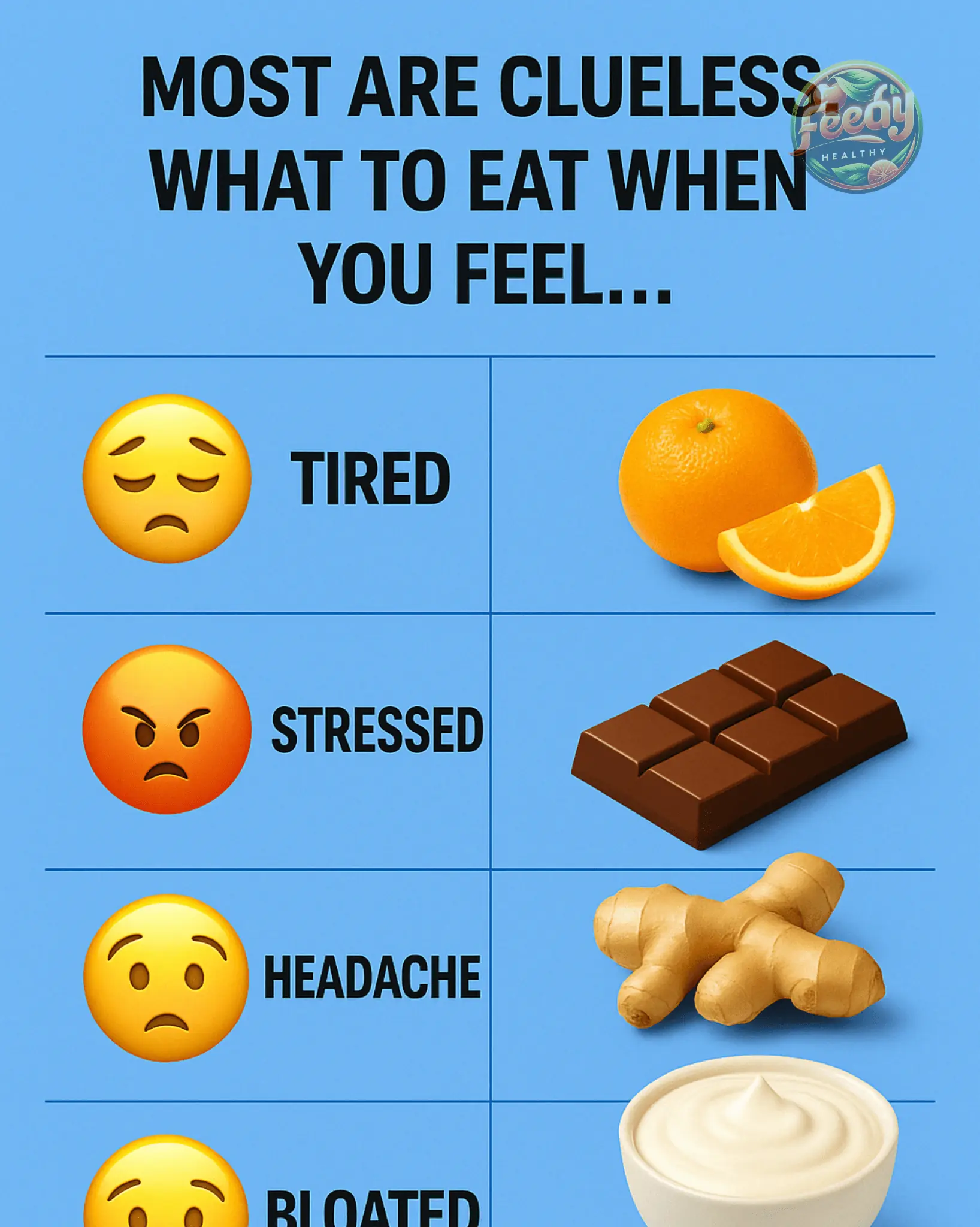
What Happens When You Eat 3 Eggs a Day? 12 Powerful Benefits Backed by Science
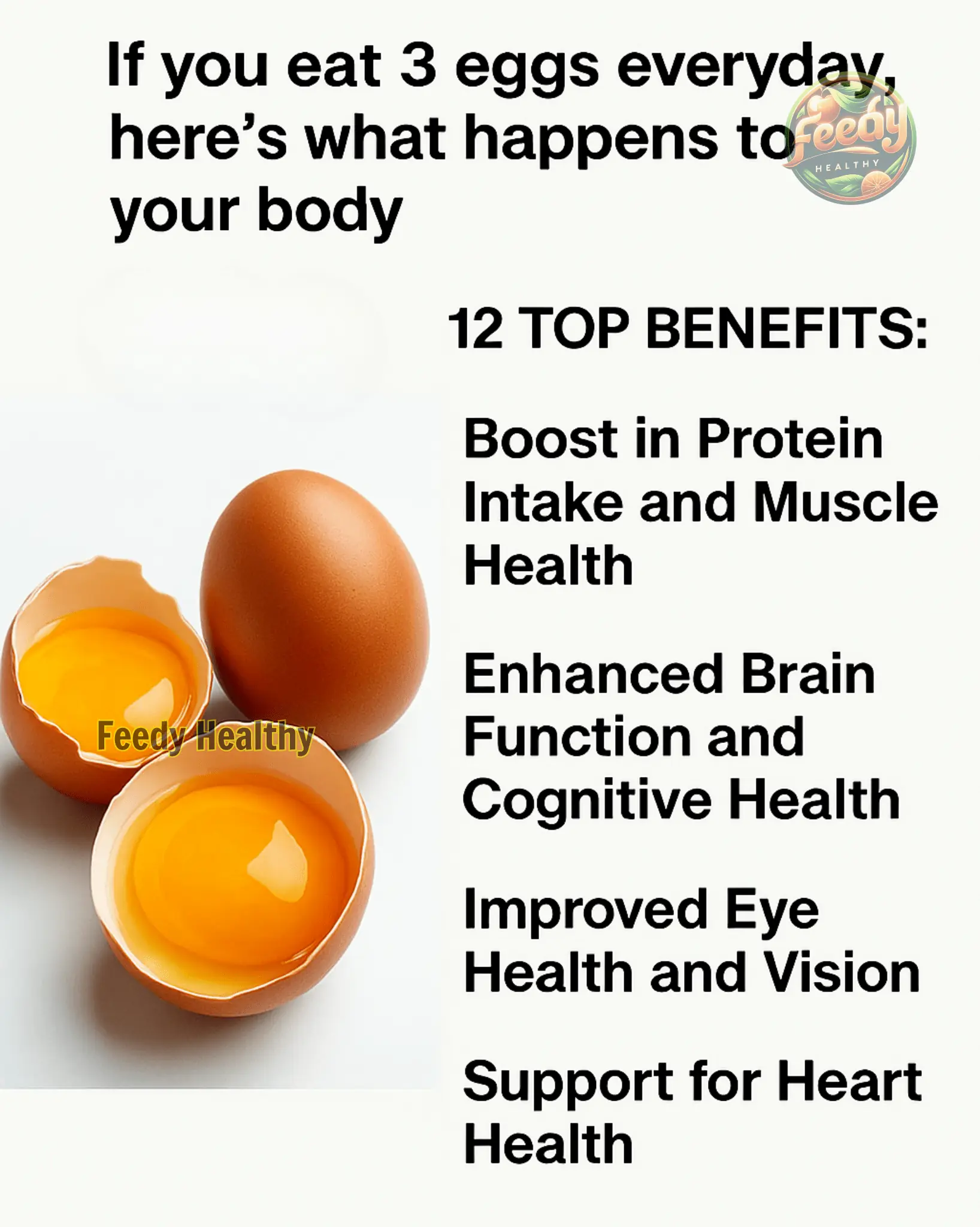
Eggs have been a nutritional cornerstone in diets worldwide for centuries—and for good reason. Their affordability, versatility, and dense nutrient profile make them a go-to food for millions. While debates over cholesterol and egg intake have been ongoing, recent research shows that for most people, eating eggs daily—yes, even up to three—can actually boost overall health when part of a balanced diet.
Let’s dive into how this humble food can impact your body when consumed regularly.
🥚 Eggs: A Nutrition Powerhouse
Each egg packs about 6 grams of high-quality protein, healthy fats, and an impressive list of vitamins and minerals including:
-
Vitamin B12, D, and A
-
Selenium and phosphorus
-
Choline (crucial for brain health)
-
Antioxidants like lutein and zeaxanthin (for eye health)
They’re also one of the few natural sources of vitamin D, which makes them an important food, especially in low-sunlight seasons.
🏆 12 Health Benefits of Eating 3 Eggs a Day
1. Boosts Protein Intake and Muscle Strength
Three eggs deliver roughly 18 grams of protein, supporting muscle repair, strength, and maintenance—especially beneficial for active individuals and aging adults. The amino acid profile of eggs supports muscle protein synthesis, helping you stay strong and mobile.
2. Supports Brain Function and Cognitive Health
Eggs are rich in choline, which aids in memory, focus, and learning. Choline is essential for neurotransmitter activity and brain development, potentially lowering the risk of cognitive decline and Alzheimer’s disease.
3. Promotes Eye Health and Sharp Vision
Thanks to lutein and zeaxanthin, eggs help protect your eyes from UV light and oxidative damage. Regular consumption may reduce the risk of cataracts and age-related macular degeneration.
4. Contributes to Heart Health
Despite containing cholesterol, studies now show dietary cholesterol doesn’t necessarily raise blood cholesterol for most people. Plus, omega-3 fatty acids in eggs can reduce triglyceride levels and support cardiovascular function.
5. Helps Manage Weight Naturally
High in protein and low in calories, eggs are highly satisfying. They help reduce cravings and calorie intake throughout the day—perfect for those looking to lose or maintain weight.
6. Strengthens the Immune System
Eggs offer selenium and vitamin D, both of which are key for immune defense. These nutrients help your body fight infections, inflammation, and viruses more efficiently.
7. Supports Radiant Skin
Nutrients like vitamin A, biotin, and vitamin E help maintain healthy, glowing skin. Combined with antioxidants, eggs also protect against environmental damage and premature aging.
8. Improves Energy Levels
B vitamins—especially B12—play a vital role in energy production. Eggs provide long-lasting fuel by combining fats, protein, and essential micronutrients.
9. Protects Bone Health
Thanks to their natural vitamin D content, eggs help your body absorb calcium more effectively—crucial for bone density and preventing osteoporosis.
10. Stabilizes Blood Sugar
With a balanced mix of protein and healthy fats, eggs slow down glucose absorption. This helps keep blood sugar levels steady, especially helpful for those managing insulin resistance or type 2 diabetes.
11. Boosts Mental Health
Eggs offer brain-healthy fats, vitamins D and B, all of which are linked to improved mood and reduced symptoms of anxiety and depression. Eating eggs may help support emotional stability and mental resilience.
12. May Support Longevity
Eggs promote full-body wellness—from the heart to the brain to the immune system. When eaten as part of a balanced, whole-food diet, they may contribute to a longer, healthier life.
🥗 Final Thoughts: Should You Eat 3 Eggs a Day?
For most people, eating three eggs daily is not only safe—it’s a smart move. With a well-rounded diet rich in vegetables, whole grains, fruits, and lean proteins, eggs can amplify your nutrient intake without breaking the bank.
As always, if you have specific health conditions like diabetes, high cholesterol, or a family history of heart disease, it’s best to consult your doctor or a registered dietitian before making any major changes.
In short? Three eggs a day could be the small habit that makes a big impact on your health.
News in the same category


Boil Ginger, Sip the Benefits: A Simple Drink That Transforms Your Health

Eat one sweet potato a day – and your liver, heart, and stomach will silently thank you.
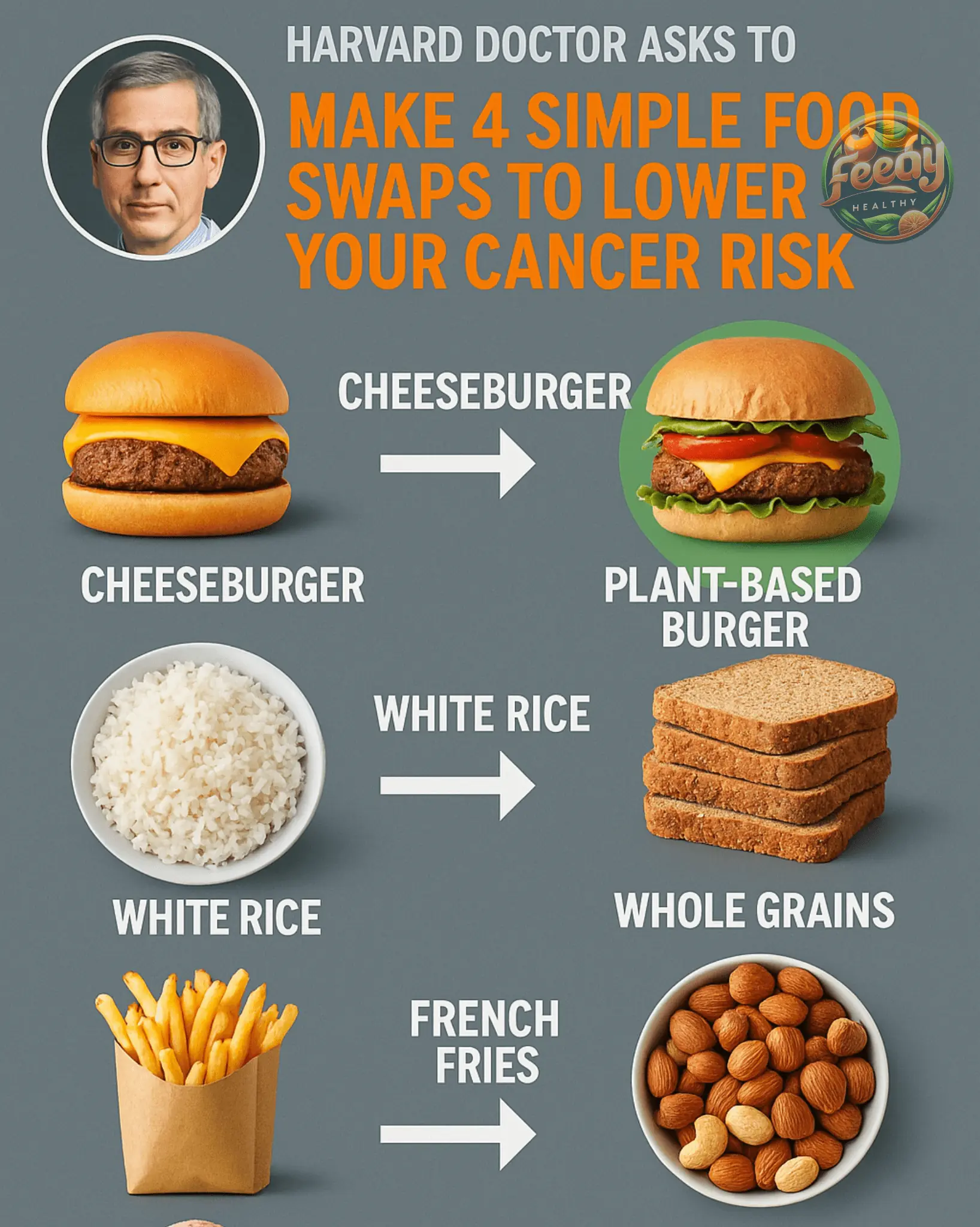
Harvard Doctor Recommends 4 Simple Food Swaps to Lower Cancer Risk

20 Reasons Why You Should Collect Dandelion Flowers Until Your Fingers Are Stained Yellow

Discover the Healing Power of Plantain

To prevent stroke, remember these "3 don’ts" after meals and "4 don’ts" before bedtime

95-Year-Old Chinese Doctor Reveals His Secret to Staying Young and Healthy: Cucumber, Lemon, and Ginger!

The Amazing Benefits of Castor Oil and Epsom Salt Combined

7 Powerful Leaves That Can Lower Diabetes, Blood Pressure, and Boost Your Health
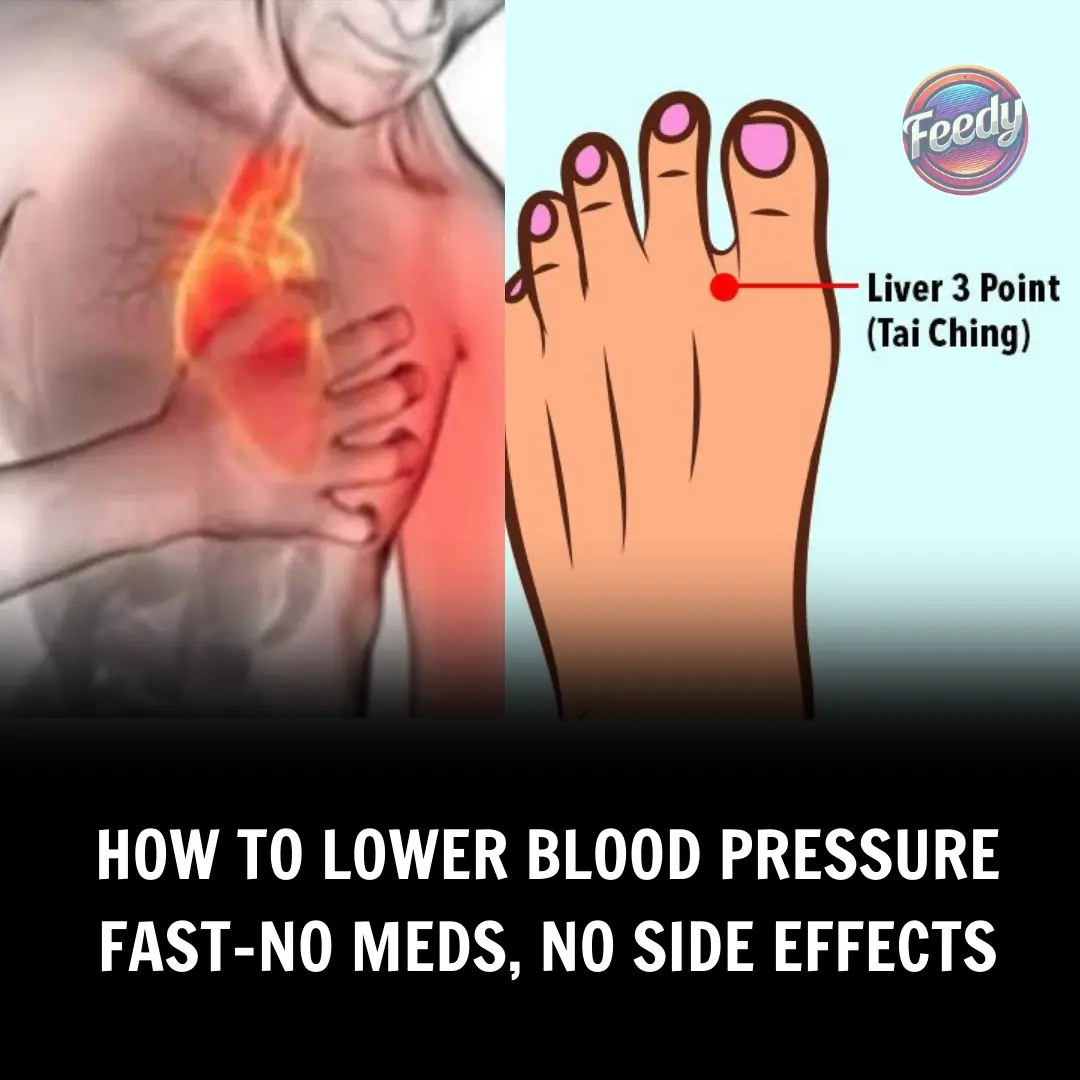
10 Natural Ways to Lower High Blood Pressure Without Medication

What That Swollen Lump Near Your Neck or Ear Really Means – And When to Worry
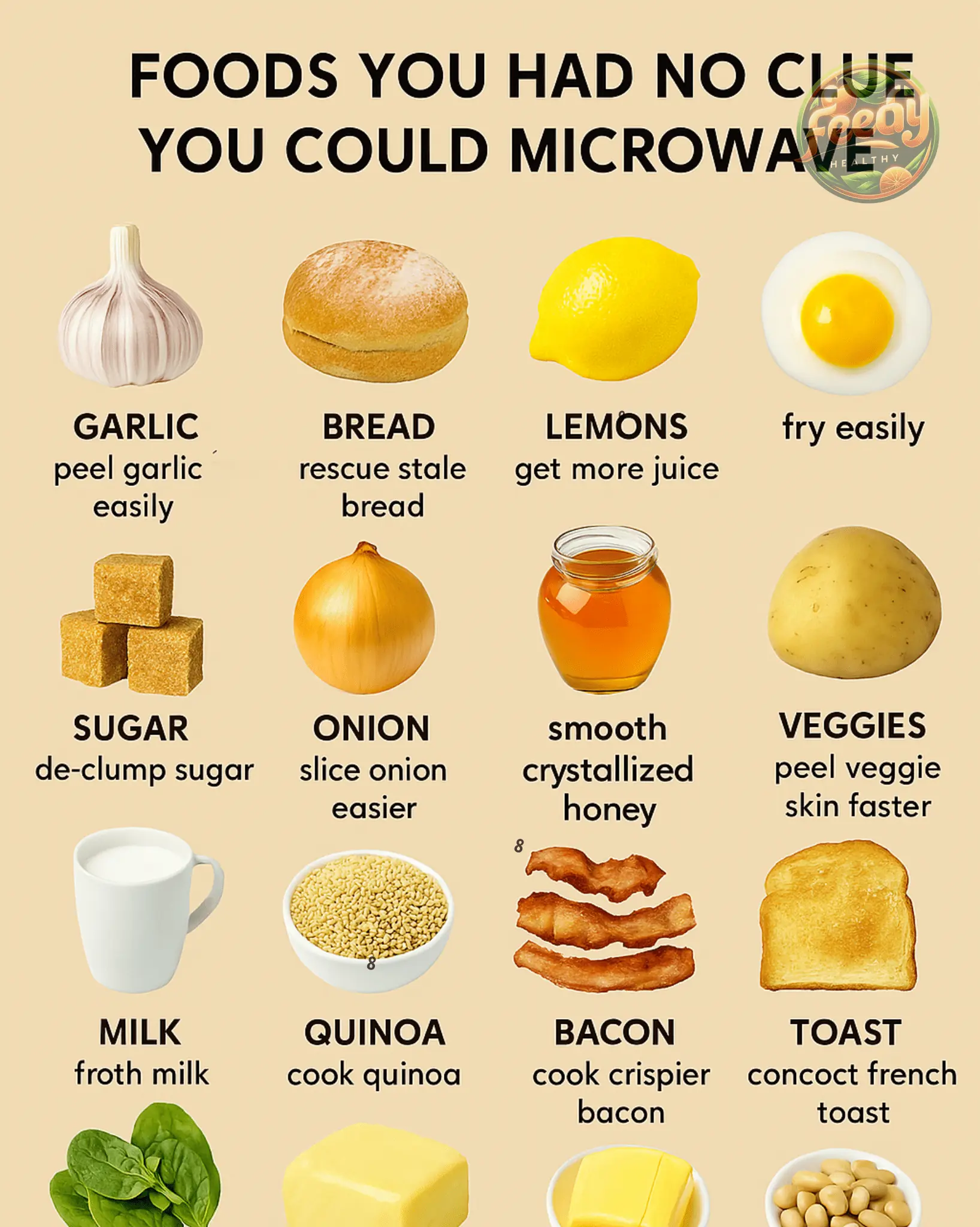
15 Surprising Foods You Can Microwave
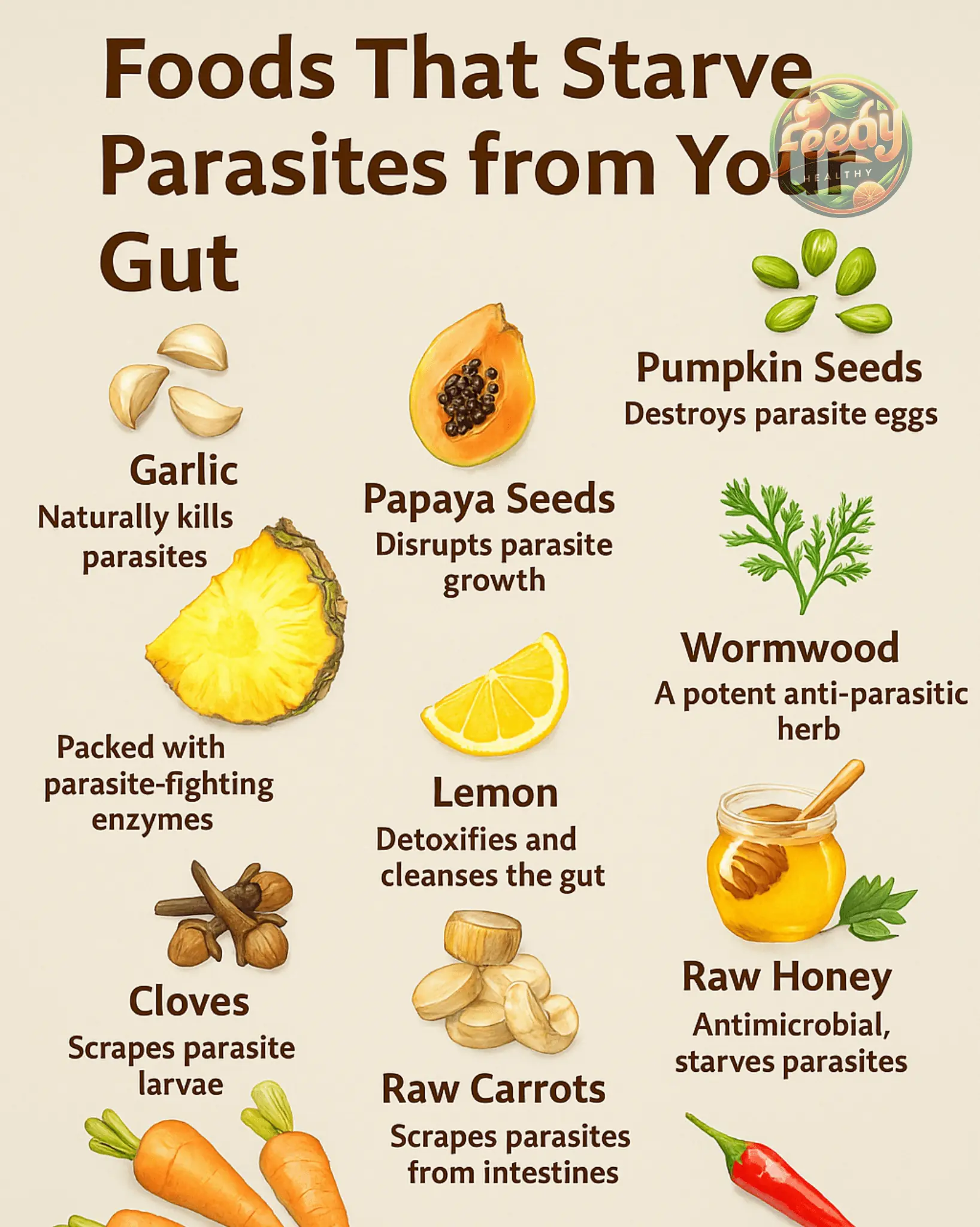
13 Foods That Naturally Eliminate Parasites from Your Gut – Eat Smart, Clean Inside
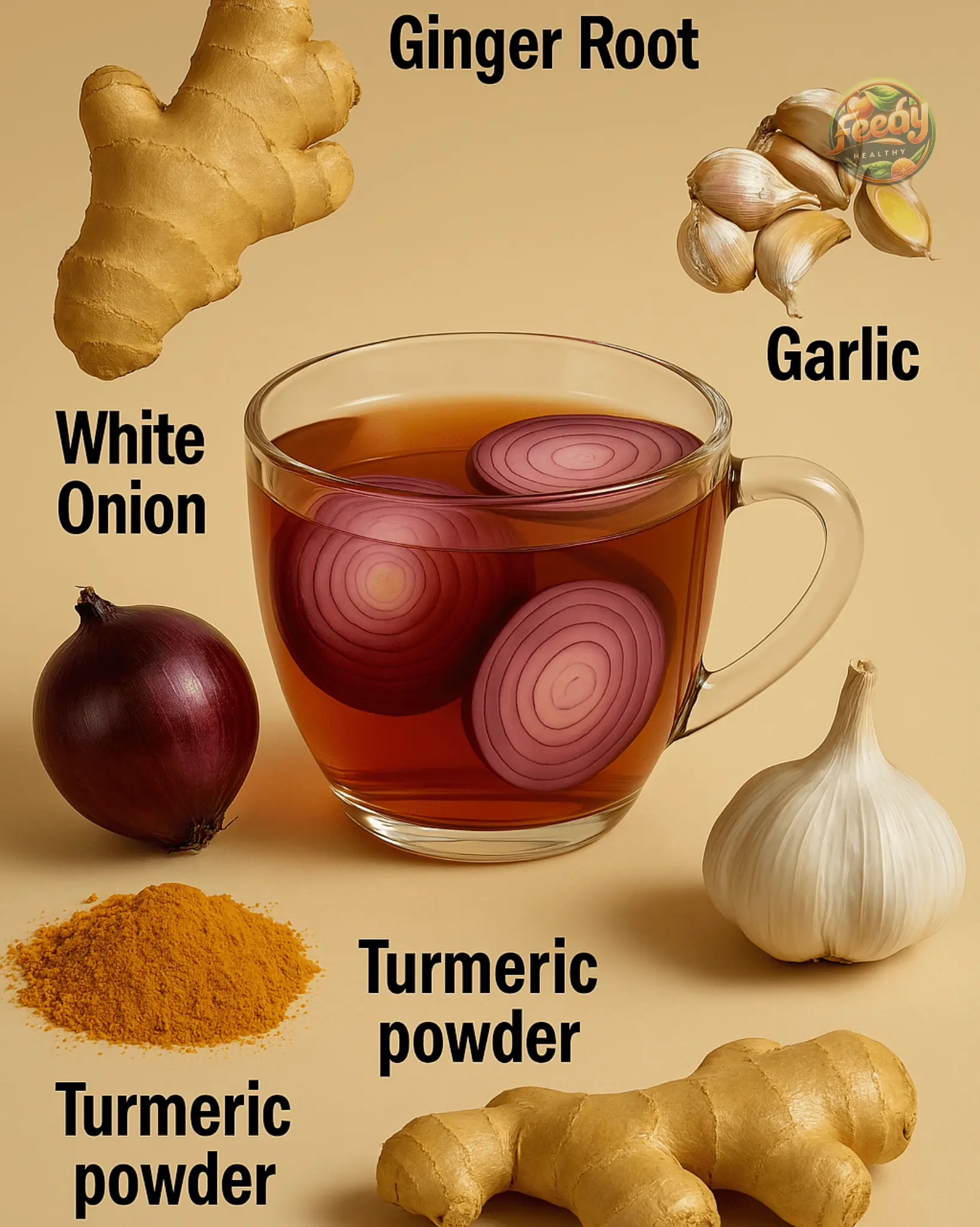
Lime, Garlic, Turmeric & Ginger: The Ultimate Natural Booster for Men’s Health

The Simple Drink a 95-Year-Old Chinese Doctor Swears By for a Youthful Body
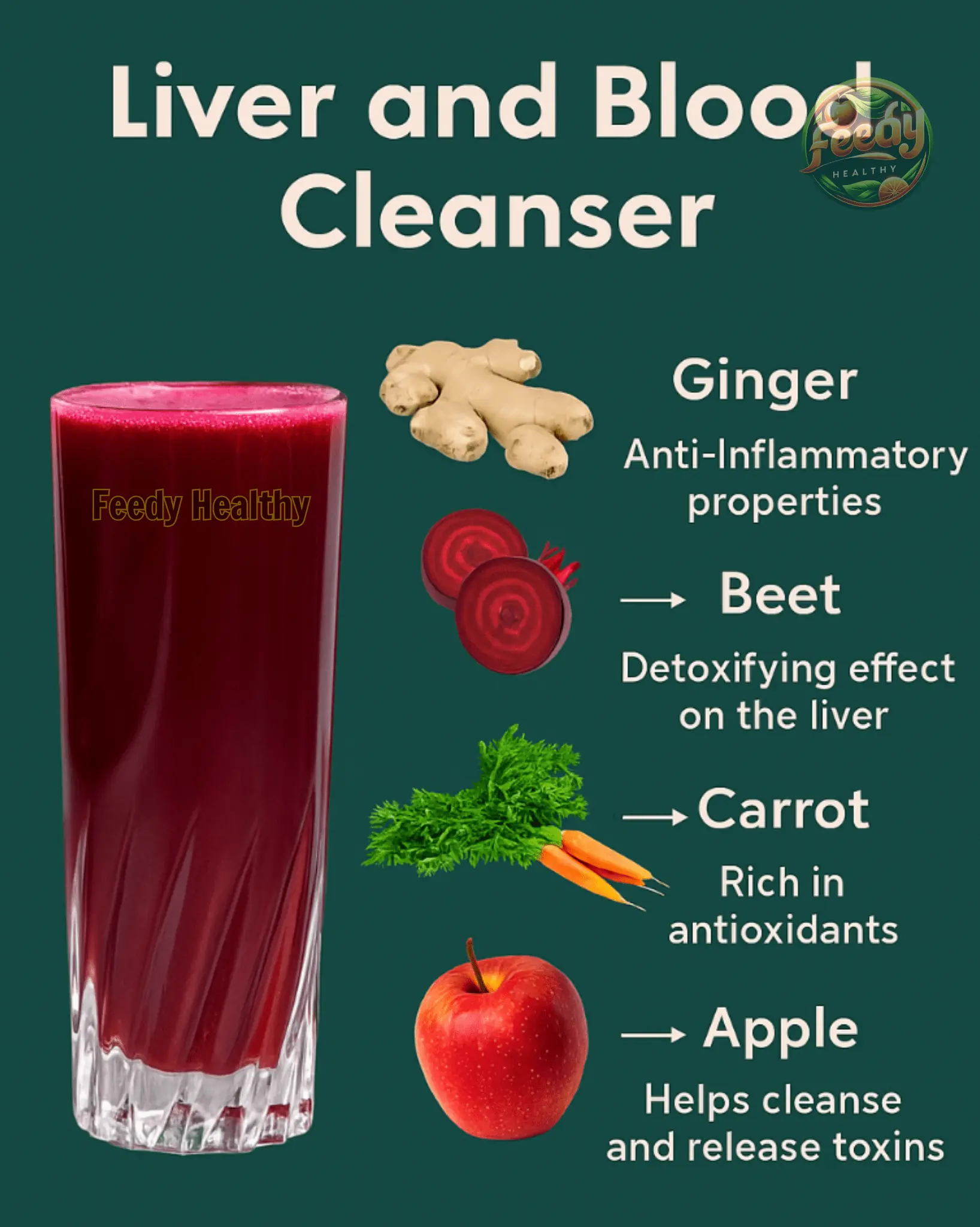
Liver and Blood Cleanser – A Natural Juice to Detox Your Liver and Purify Your Blood
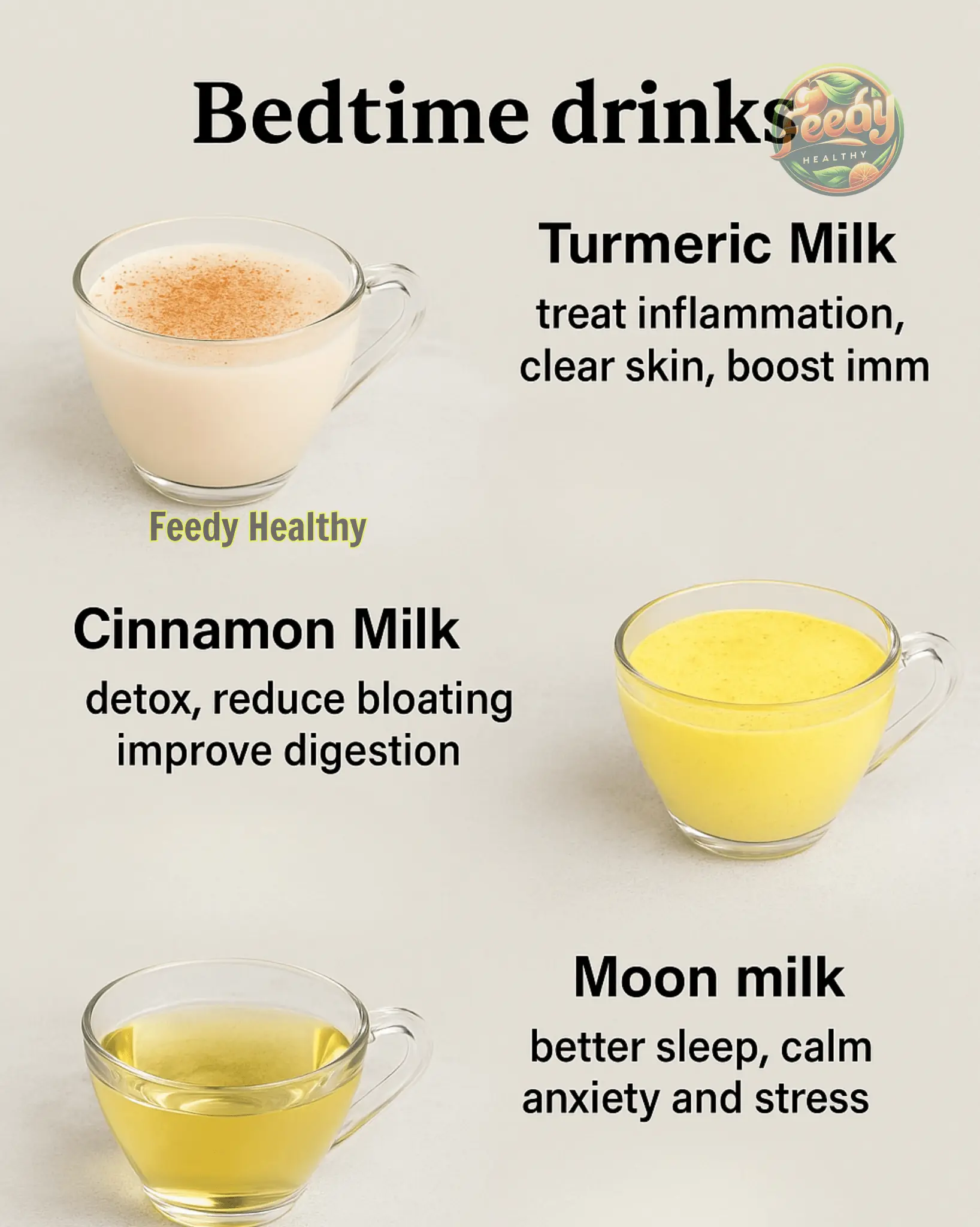
4 Soothing Bedtime Drinks for Better Sleep, Less Stress & Natural Beauty
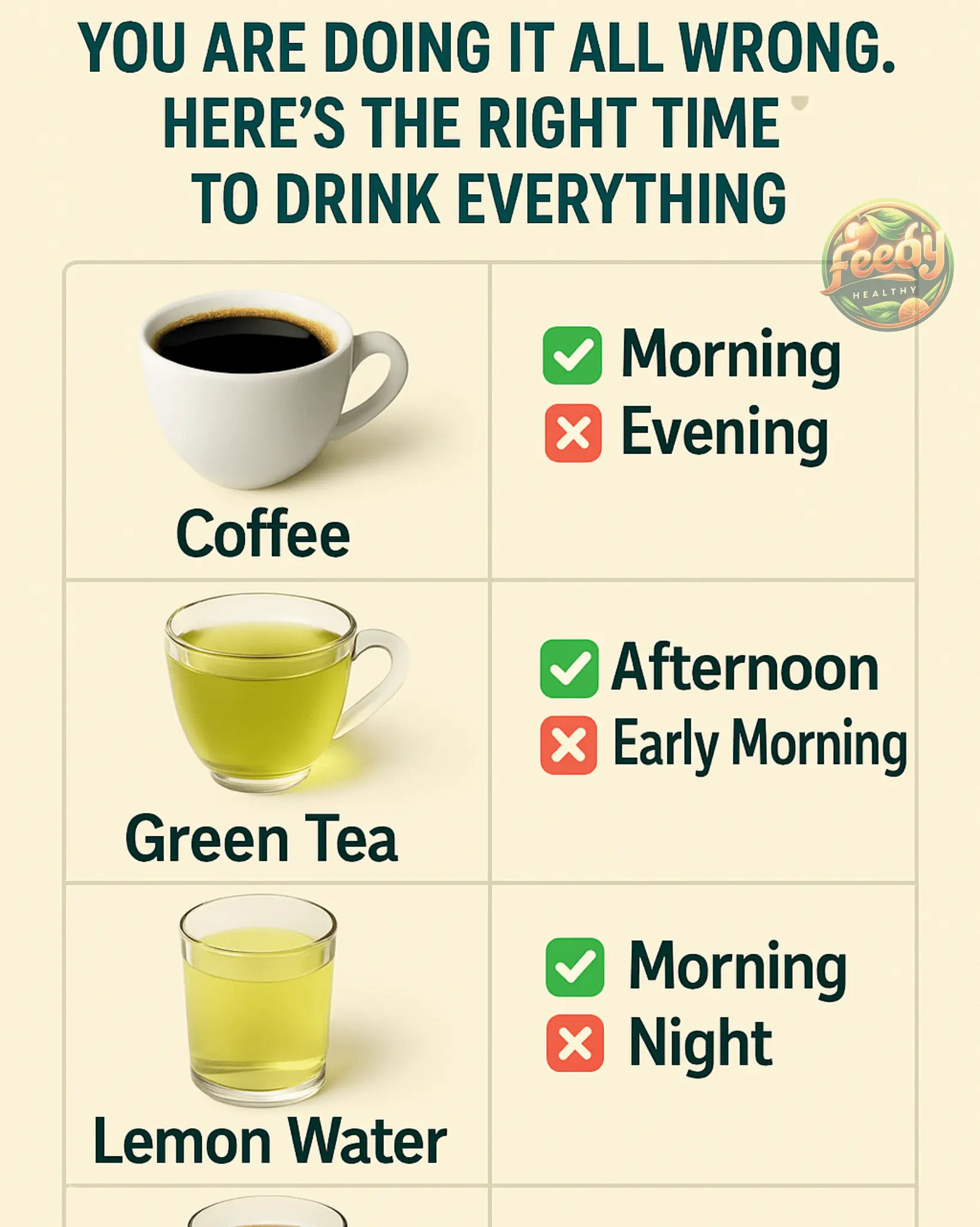
You Might Be Drinking at the Wrong Time — Here's When You Should Be Sipping for Maximum Health
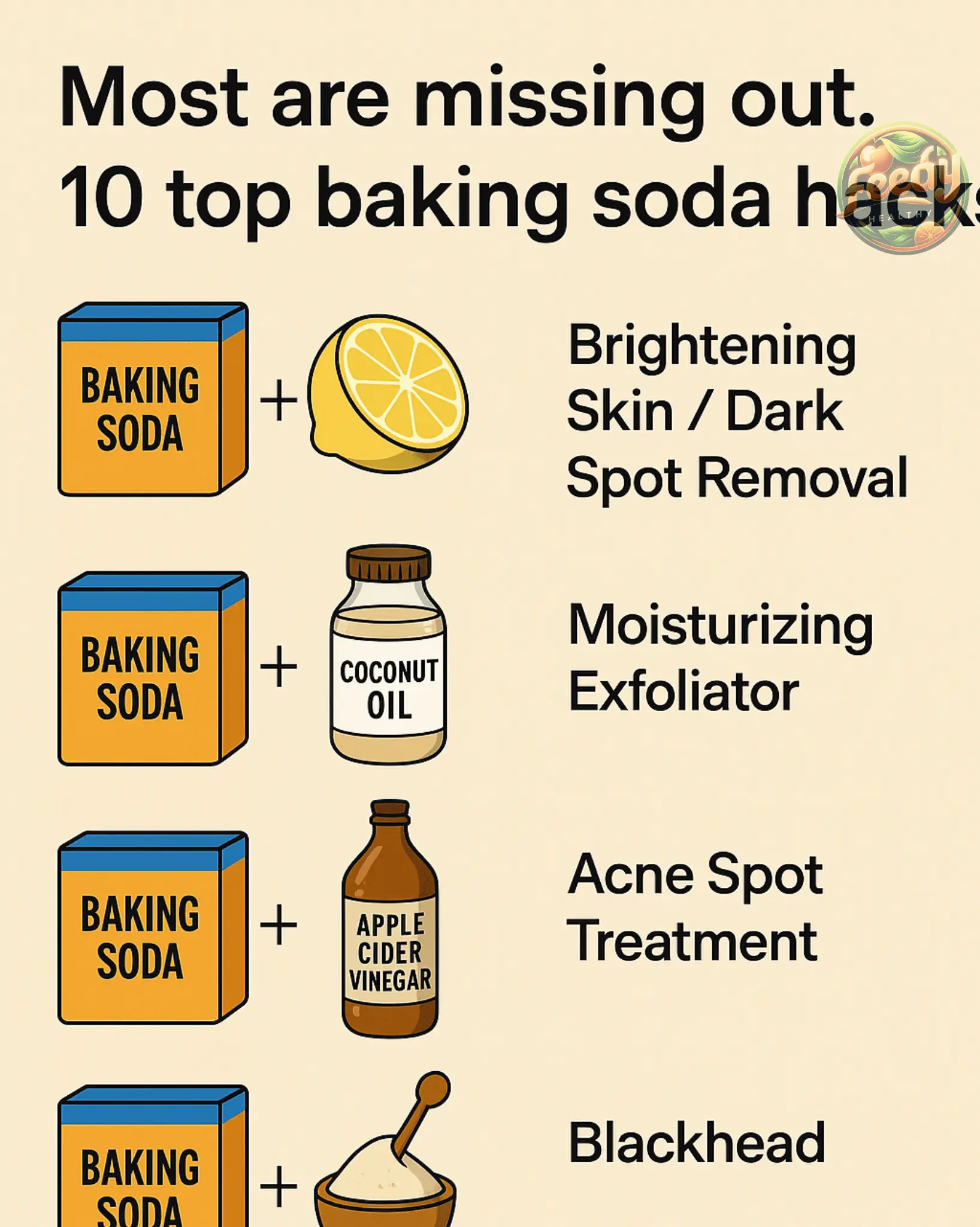
Most are missing out. 10 top baking soda hacks
News Post

How to Tell If Your Eggs Are Still Fresh: The Ultimate Kitchen Guide

Most are clueless. What to eat when you feel

People Freaked Out After Spotting Creepy Hidden Face in Group Photo

Effects of music on cancer cells: what the science says.

Game Challenge: Find 15 Differences in 30 SECONDS!

Understanding a Cat’s Behavior: Why Does It Rub and Scratch Against You?

These 5 Popular Drinks Are Slowly Damaging Your Kidneys — Are You Still Drinking Them?

California Authorities Identify Human Remains As A 13-Year-Old Girl Who Vanished 50 Years Ago

Stephen Hawking said he had a simple answer when asked whether he believed in god

Find Pizza, Comb, Fork, Ice Cream...😊

I Meticulously Saved Every Penny for Our Dream Home—Only for My Husband’s Parents to Try and Claim It.

She Believed The Dog Had Numerous Bites, But The Doctor Examined It More Closely And Called The Police

My Ex-husband Got Our House, Car and All Our Money After Divorce – I Laughed Because That Was Exactly What I Planned

Can You Spot All 12 Differences? Let’s Find Out!

Homemade Korean Rice Face Cream For Wrinkle Free, Young Skin

Use This To Reverse Your Premature Grey Hair With Home Remedies

Woman Humiliated Me at a Restaurant, but the Next Day, She Appeared at My Door as My DIL…

The only drink you need for glowing skin

Pope Francis is back at the Vatican after a five-week hospital
